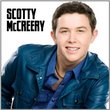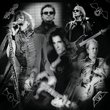| All Artists: Grateful Dead Title: Workingman's Dead Members Wishing: 5 Total Copies: 0 Label: Rhino / Wea Original Release Date: 1/1/1970 Re-Release Date: 2/25/2003 Album Type: Original recording reissued, Original recording remastered Genres: Pop, Rock, Classic Rock Styles: Jam Bands, Rock Jam Bands, Psychedelic Rock Number of Discs: 1 SwapaCD Credits: 1 UPCs: 081227439620, 081227439668 |
Search - Grateful Dead :: Workingman's Dead
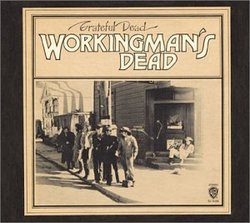 | Grateful Dead Workingman's Dead Genres: Pop, Rock, Classic Rock
Expanded & remastered (HDCD) version of the band's 1970 seminal masterpiece includes 7 bonus cuts 'New Speedway Boogie' (alt. mix), 'Dire Wolf' (live), 'Black Peter' (live), 'Easy Wind' (live), 'Cumberland Blues' (l... more » |
Larger Image |
CD DetailsSynopsis
Album Description Expanded & remastered (HDCD) version of the band's 1970 seminal masterpiece includes 7 bonus cuts 'New Speedway Boogie' (alt. mix), 'Dire Wolf' (live), 'Black Peter' (live), 'Easy Wind' (live), 'Cumberland Blues' (live), 'Mason's Children' (live) & 'Uncle John's Band' (live). Digipak. Warner/Rhino. 2003. Similarly Requested CDs
|
CD ReviewsA Classic Album Gets Even Better Steve Vrana | Aurora, NE | 02/26/2003 (5 out of 5 stars) "The Grateful Dead's classic 1970 album gets even better on this Rhino reissue. Not only is the album more than doubled in length with bonus material, you also get a terrific live version of "Mason's Children," a band composition that was initially slated to to end side two but was left off the LP because (according to the liner notes) Garcia and Lesh thought the vocals sounded too "pop." The "hidden" bonus track is a 30-second radio spot promoting the album. The rest of the bonus material is live versions of five of the original songs taken from concerts between 1969-1970. In addition there is an alternate mix of "New Speedway Boogie."This single-disc release from Rhino is identical to the version included in 2001's pricey--but essential--box set THE GOLDEN ROAD (1965-1973). If you're going to own only one album from this legendary band, the nod would have to go to WORKINGMAN'S DEAD. This album sounds as fresh today as it did thirty-three years ago. (Running Time - 79:54) ESSENTIAL" A studio high Laurence Upton | Wilts, UK | 03/04/2005 (4 out of 5 stars) "Any ill-informed Dead Head who bought this upon its release in June 1970, expecting more of the acid-drenched blues and psychedelia of such recent predecessors as Anthem Of The Sun and Aoxomoxoa, must have had a considerable shock when they dropped the needle into the groove, and track one, Uncle John's Band, began to play. The hallmark guitar was augmented by mellifluous pedal steel and banjo, and in the place of all the weirdness and experimentation came beautifully-recorded, clean sounding, almost traditional, timeless songs, song after song with three-part harmonies and tunes you almost felt you knew already. The Dead had gone back to their roots, the music they grew up with, and their lyricist, Robert Hunter, had risen to the challenge with songs about miners and engineers that belonged within a rich musical tradition, largely forgotten, that was being re-invented by artists like the Band and Ry Cooder. When they entered the studios behind the Fillmore for two weeks in February 1970 they had been coached in harmony by Crosby, Stills and Nash, knew all the songs they were to record and even the order they were to appear on the album, and were completely focused on their mission. This, and its equally inspired sequel American Beauty, expel the myth that the Grateful Dead were a live band whose studio work was of secondary importance, and can stand up proudly against any other record. This 79-minute edition, re-mastered in HDCD, doubles the length of the original album with live material and one alternative take. The live recordings, mostly from 1970, are all songs from the album plus one song that had been intended to close side two but was eventually not used (Mason's Children), and show how the Dead were both able to integrate the new material into their set and to play it so convincingly well. The earliest recording here is Dire Wolf, from Santa Rosa CA in June 1969, showing they were previewing their new direction alongside their existing set a full eight months before they entered the studios" Revelations Abound Steve Vrana | 02/28/2003 (5 out of 5 stars) "ALL of the New GD Remasters are pretty great, but the acoustic tracks on this album really stand out. Even if you've heard the album 1000 times as I have this one, you're going to find something you've never heard before. Like it was recorded yesterday. If you don't have HDCD on your CD Player or DVD (most don't offer that feature), you can get it with a soundcard for your computer. It really makes the sound jump out at you. The bonus tracks on this and the other GD Remasters are great as well, and it's nice to see them put the empty space on the CD's to good use. Well worth the money, and a proud addition to my collection."
|

 Track Listings (16) - Disc #1
Track Listings (16) - Disc #1
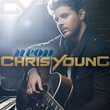



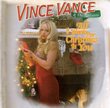

![Haywire [Deluxe Edition]](https://nationalbookswap.com/cd//m/84/3484/1713484.jpg)
